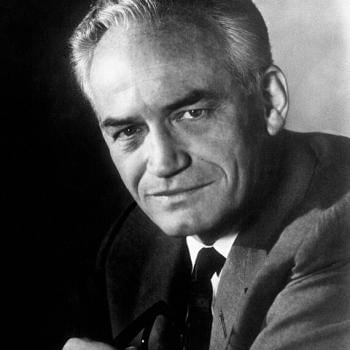Last Monday an unprecedented number of coaches and general managers were fired from their positions in the NFL.
The common denominator? Owners wanted results. They weren't getting them and it was time to find someone who could deliver.
The other common denominator? All of the owners belong to the Jean-Luc Picard School of Leadership (the captain of Star Trek, The Next Generation's Starship, Enterprise).
Motto? "Make it so."
Never mind the element of chance. Never mind the performance of the moment. Never mind the failure of the franchise to provide football players who can play the game and/or have the right assignment. Never mind the fact that there is one winner of the Super Bowl, one set of division winners, one set of wildcard teams, and they all represent a fraction of the people playing the game.
The owners want what they want. The coaches and GMs didn't deliver. They are gone now. They want to win. "Make it so."
Were all of the GMs and coaches doing their job? Honestly, I don't know. What I do know is that there are more owners who fired more coaches and general managers than can possibly win the Super Bowl next year and they won't be the only ones trying to make the cut. As such, the simple assertion, "We want to win, we want to be 'the one,'" while an understandable goal is—contextually—marked by an air of unreality.
Spiritually grounded leaders do not start by delegating blame. They start by contemplating the challenges that an organization faces and taking responsibility for the complexity of those challenges, including:
- the environment within which an organization functions
- the factors that shape that environment
- a strategic assessment of what can be controlled and what cannot be controlled
- the identification of outcomes that can be predicted and those that cannot
- the conservation and nurture of relationships, individuals, and their gifts
- honest self-assessment from top to bottom
I describe this as spiritual form of leadership because it focuses in places that transactional and bureaucratic forms of leadership fail to notice.
A spiritual approach to leadership arises out of a larger sense of responsibility for the whole of creation and for any organization as a microcosm of our shared human endeavors. It takes responsibility for the complexity of an endeavor and, while it pays attention to preparation and performance, it recognizes the fact that the environments in which we work present certain challenges that cannot be addressed simply by switching out a coach. Above all, a spiritual form of leadership begins with taking responsibility for surveying the fabric of an endeavor and the role of the leader her- or himself.
There are countless factors that have created the climate that we saw on display this week among the NFL's struggling teams—as there are in our society in general: a zero-sum approach to life that thinks of the world as an aggregate of winners and losers; an approach to life mark by a scarcity mentality; a social climate that prefers posturing over analysis; and a lack of imagination that feeds on the wealth our world offers us, rather than the far harder, imaginative task of nurturing that wealth (of all kinds) in new ways.
But there are perennial obstacles to spiritual leadership that have less to do with the Zeitgeist of any age and more to do with the leader's inner work that is always at issue: a capacity for humility, self-transcendence and self-criticism; a passion for an endeavor or "calling" larger than her- or himself; a love of others; a sense of responsibility for and connection with the world around them.
In any age, regardless of the cultural and social dynamics, those characteristics make or break real leadership—not just on Black Monday, but on any day of the week.
12/2/2022 9:10:31 PM





